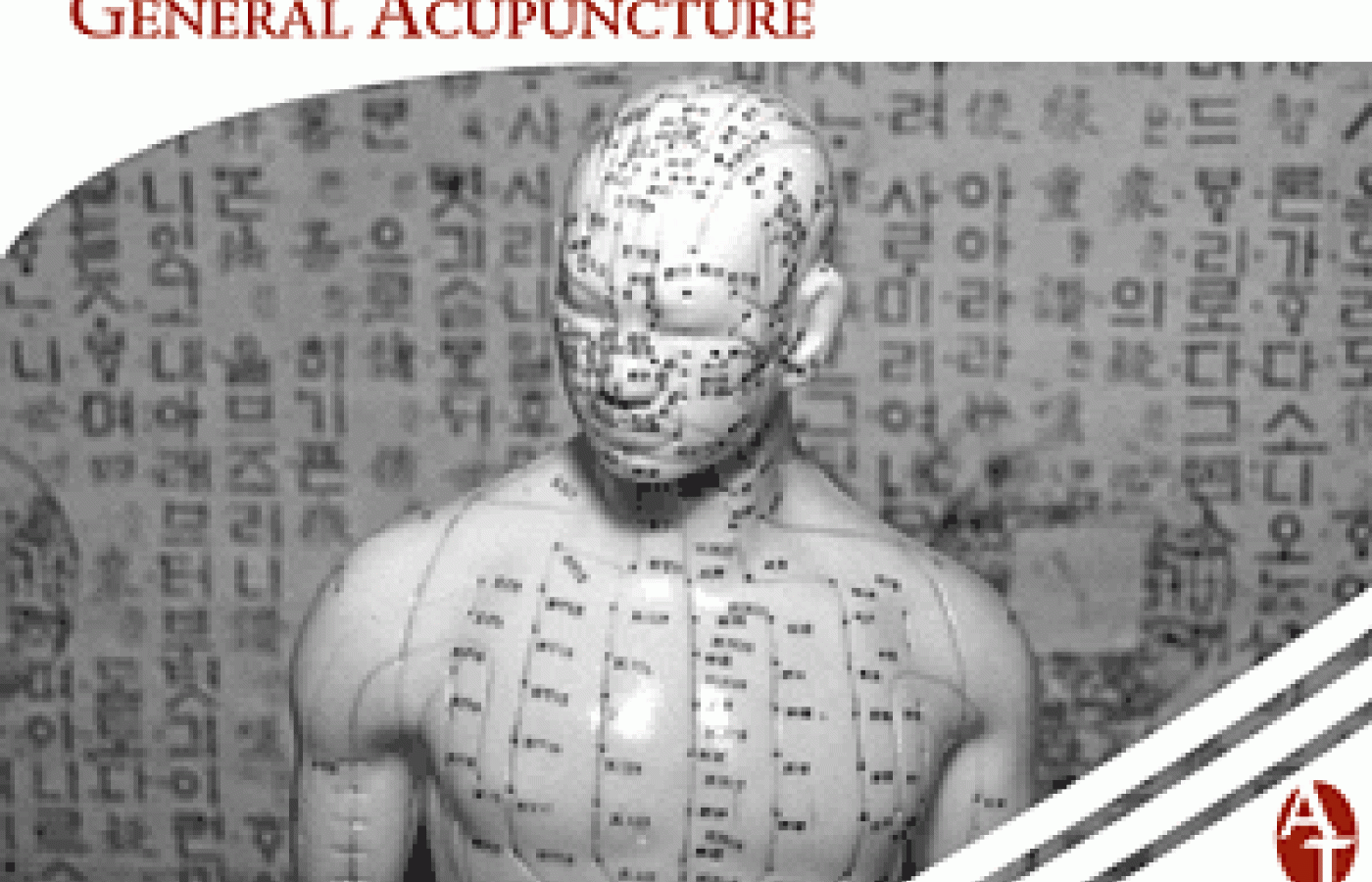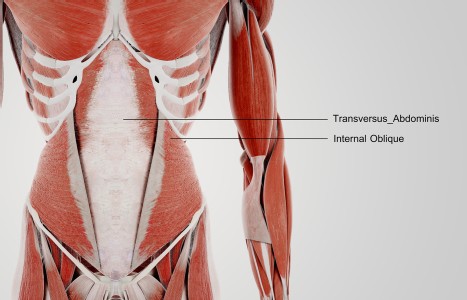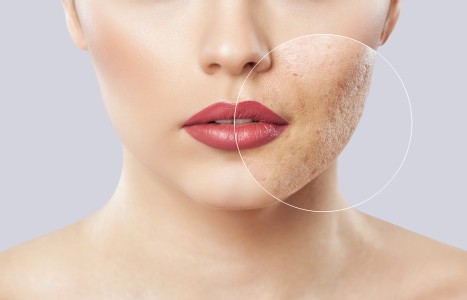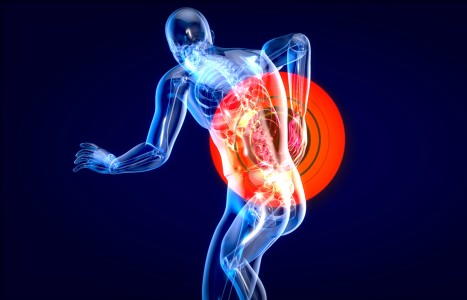TrA-2, my primary needle location, I needle 95% of the time and I think it works the best. You’ll know you have the right point location when you discover the muscle twitching when applying electric stimulation.
On Point
Here is the latest acupuncture news and happenings from around the world to help you stay "on point" with the profession. This month there is exciting news from many of the acupuncture schools across the country. Expansions, promotions, events and more.
New Stroke Rehabilitation Program For Acupuncturists
Emperor's College of Traditional Oriental Medicine is now offering a Xing Nao Kai Qiao stroke rehabilitation and prevention module in its Doctorate of Acupuncture and Oriental Medicine program.
The Xing Nao Kai Qiao (XNKQ) acupuncture protocol was developed in the early 1970s by Dr. Shi Xue Min at Tianjin University, China, and has proven extremely effective in treating stroke and dementia patients as well as preventing stroke for those at risk. Emperor's College will be the first institution in the United States to teach a module in Xing Nao Kai Qiao stroke rehabilitation and prevention, complete with clinical rounds.
Due to its unique characteristics in the treatment of stroke patients, the Xing Nao Kai Qiao (XNKQ) acupuncture therapy has been widely used in China for the past 40 years. Studies have shown that XNKQ therapy significantly increases the recovery rate among stroke patients. The Xing Nao Kai Qiao stroke rehabilitation and prevention module is led by Atsuki Maeda, MTOM, LAc, an esteemed stroke rehabilitation specialist trained under Dr. Shi Xue Min of Tianjin University in China. If you recall, the Xing Nao Kai Qiao Stroke rehabilitation and prevention protocol recently gained recognition in the United States through the documentary 9000 Needles. The documentary reinforces the need for innovative approaches in stroke rehabilitation in the United States by showing the effectiveness of an integrative stroke rehabilitation program.
New Step For PCOM V.P.
Stacy Gomes, (Ed.D. M.A.Ed.), Vice President of Academic Affairs for the Pacific College of Oriental Medicine has been invited to participate in the Western Association of Schools and Colleges Assessment Leadership Academy (ALA). The ALA prepares campus professionals to provide leadership to support the scholarship of assessment at their institution, as well as other institutions. The Academy curriculum includes both structured and institutionally tailored learning opportunities in the assessment of educational effectiveness, and addresses national issues in assessment, accreditation, and accountability. The Academy is a reflection of the need in higher education to be more accountable for student learning and increasing this capacity across the nation, and more specifically in the western region. Participants will develop assessment expertise and serve in on-going assessment leadership roles on their campus and nationwide. Professionals who complete Academy requirements also develop expertise in assessment foundations, assessment training and consultation, campus leadership in assessment, and the scholarship of assessment. With more assessment leadership at our AOM schools our profession will position itself to be more responsive to the healthcare competencies needed for future growth.
Unitying For A Cause
Students at Southwest Acupuncture College in Boulder, Colo. held a silent auction and fundraiser for Acupuncturists Without Borders Japan disaster relief. The auction was accompanied by the sale of tasty treats, music, and a school community gathering. They raised $1,000 in the fundraising and received a matching grant from a local corporation for a total of $2,000 raised to AWB. Students Lauren Neeff and Michael Gurule led a group that demonstrated what a small dedicated group of people can do.
Expansion for PIHMA
Congratulations to the Phoenix Institute of Herbal Medicine & Acupuncture, College and Clinic for their recent expansion. In the past six months, PIHMA expanded into a new space that provides them with two more classrooms, one of which is a large community classroom that can hold 75 plus people. It can also hold movement and bodywork classes, and a lounge/cooking room. The school has also expanded staffing in the academic and accounting departments to manage growth and additional programs and services.
Happenings at Yo San University
Yo San University has posted record enrollments which for the first time have surpassed the 200 mark. YSU programs now include 185 students in the master's program and 20 in two cohorts of the doctoral program for a total enrollment of 205 students. The university has also invested significantly in the engagement of technology in TCM education, by outfitting several classrooms with SmartBoard technology. The addition of these state-of-the-art instructional tools introduces ceiling mounted LCD projectors and web capability among many other features to the Yo San classrooms and teaching strategies. Several faculty development sessions have been conducted to orient faculty to the technology including the most recent session which demonstrated the capabilities of the SmartBoard "clicker response system," which the University is considering for acquisition as it establishes priorities for further investment in instructional technology. YSU faculty member, Ed Shaheen, M. D., has spearheaded this initiative and has served as a consultant for faculty who are learning the potential that the SmartBoard applications offer for enhancing active learning in the classroom.
SCU Centennial Extravaganza & Centennial Gala Dinner
The Southern California University of Health Sciences is celebrating 100 years of Excellence in Healthcare Education. From August 26th through the 28th at the Anaheim Marriott Hotel the school will offer a Continuing Education Program in conjunction with their Centennial Celebration. For one low price attendees will be able to mix-n-match CEU approved topics with dynamic speakers while enjoying all the festivities of the Centennial Celebration all for only $149 for DC's and $99 for LAc's. Students get in for free. This year's program will offer Continuing Education Course for: DC's, LAc's, QME's & CSCS's.
Some of the topics to be presented include:
- Proper Insurance Billing & Coding
- Current Trends and Practical Applications in Sports Medicine
- Complementary Integrated Healthcare in the Hospital Setting and in the VA
- Building an Integrated Practice
- Advanced Acupuncture Protocols
- Clinical Nutrition With Practical Applications
- Workers Compensation and What's New
- Advanced Herbal Formula Application to Current Conditions
- Techniques
- Ayurvedic Medicine
- Radiology
- Current Trends in Personal Injury
A percentage of the proceeds from the Centennial Gala Dinner will directly benefit students through the Presidential Scholarship Fund. A silent auction will also be held during the Centennial Gala Dinner, with all proceeds directly benefitting the Presidential Scholarship Fund.
MEEting of the minds at Cedars Sinai
The Cedars-Sinai Medical Center, located in Beverly Hills, Calif. recently held a Complimentary Education Conference and Multidisciplinary Approach for Chiropractors and Acupuncturists. These were the first of a multi-part series focusing on "The New Paradigm in Conservative Care: Team Work." About 80 acupuncturists, numerous chiropractors were invited to dinner and then heard several of the Orthopedic specialists present information about medical specialties and case studies of patients. This new approach on behalf of the MD's is to reach out, build bridges and focus on improved patient care. The new paradigm is for collaborative patient-centered practices through interprofessional education of primary care and specialists. The presentations were short and very informative. It was great to see practitioners from the three disciplines meeting and greeting and involved in discussion during dinner and the break time. It took a long time to clear the room at the end and many were talking about the next meeting and what could be discusses. This is indeed the cutting edge and the wave of the future for the true goal is INTEGRATION.
ACCAHC Competencies
Following a lengthy collaborative process involving academic leaders from eight disciplines, the Academic Consortium for Complementary and Alternative Health Care (ACCAHC) has endorsed what it calls the Competencies for Optimal Practice in Integrated Environments. ACCAHC is presently focused on aggregating and creating content to develop a rich web-portal, the Center for Optimal Integration, www.optimalintegration.org to assist educators, practitioners and organizations of all types to move toward such competencies. Mike Wiles, DC, MEd, Vice President and Provost at Minnesota-based Northwestern Health Sciences University, is among those leading the ACCAHC process.The ACCAHC Competencies consist of 28 competency elements in five distinct fields:
- Healthcare policy
- Institutional healthcare culture and practice
- Interprofessional education
- Communication and interprofessional relationships
- Evidence-based health care and evidence-informed practice.
A multidisciplinary group of over 50 professionals from ACCAHC's Education Working Group, Clinical Care Working Group, Research Working Group, Council of Advisers, Board of Directors and member organizations participated in the multiple stages of the process that began in September 2009. Take a look:
Competencies for Optimal Practice in Integrated Environments
Preamble: Skills in team care are essential for all healthcare practitioners. Knowledge of other health care systems and the practices of colleagues in other fields provides a necessary beginning. Inter-and intra-professional education (IPE) that occurs in classes, clinics and research projects, for health care students and faculty, enhance the ability to collaborate. For members of the licensed integrative practice disciplines, education in these areas gains importance as patients form their own teams and as health systems open their doors to practice opportunities in interdisciplinary, inpatient and outpatient environments. These competencies and related knowledge areas are guides for collaborative efforts toward better patient care through enhancing mutual respect and understanding across healthcare professions. This document, which assumes that all practitioners are equipped with their own, discipline-specific clinical competencies, is meant to serve as a resource to all parties to these emerging healthcare teams.
Healthcare Policy
Describe policy issues, structures, emerging clinical and economic models, and other factors that may impact clinical and financial decisions; discuss how cost, compensation models and incentive structures influence care decisions; summarize recent history of integrated care, including varieties of integrated care models; describe best practices, opportunities and challenges.
Institutional Healthcare Culture and Practice
Explain inpatient and outpatient health system accreditation standards and protocols; describe authority structures and decision processes; explain credentialing and privileging mechanisms; identify and discuss liability issues; contrast provider payment models; describe the clinical services and processes of care for other disciplines in a facility; identify and apply common medical terminology; appraise a medical record; select appropriate medical codes; define relevant short-hand and abbreviations; evaluate standard charting and documentation in both paper and electronic medical record formats.
Inter-Professional Education (IPE)
Describe the various health care systems in common practice including both conventional and the licensed complementary and alternative healthcare fields, as well as the emerging fields and traditional world medicines; discuss the emphasis each places on disease prevention, wellness and the therapeutic strategies engaged for health creation.
Communication and Inter-professional Relationships
Discuss concepts of one's own discipline in terms appropriate for administrators and practitioners in other disciplines; role-play strategies useful for building appropriate consultation, referral and co-management relationships; identify decision processes in complex institutions; demonstrate public speaking and presentation skills to represent your discipline and practice to larger groups; produce written and presentation materials suitable for both consumer and professional audiences; identify leadership strategies useful in fostering institutional change; and integrate the knowledge, skills and values described in the practitioner-to-practitioner section of Health Professions Education and Relationship-Centered Care (Pew Health Commission, 1994, page 36; attached).
Evidence-based Health Care and Evidence-informed Practice
Discuss basic research principles and methodologies within the context of both clinical and mechanistic research; evaluate research; explain the role of scientific evidence in healthcare in the context of practitioner experience and patient preferences and apply evidence-informed decision making; describe and discuss the research base within one's own discipline; relate contemporary issues in integrative practice research, including those relative to measuring whole practices, whole systems and health outcomes; identify and appraise the positive and negative interactions and contraindications for one's own modalities and agents; and identify standard research methods and tools appropriate for assessing one's field in a clinical setting.
For more information on these competencies, go to www.optimalintegration.org.
Do you have exciting news you would like to share? Send me a note at marilynallen@aol.com.



